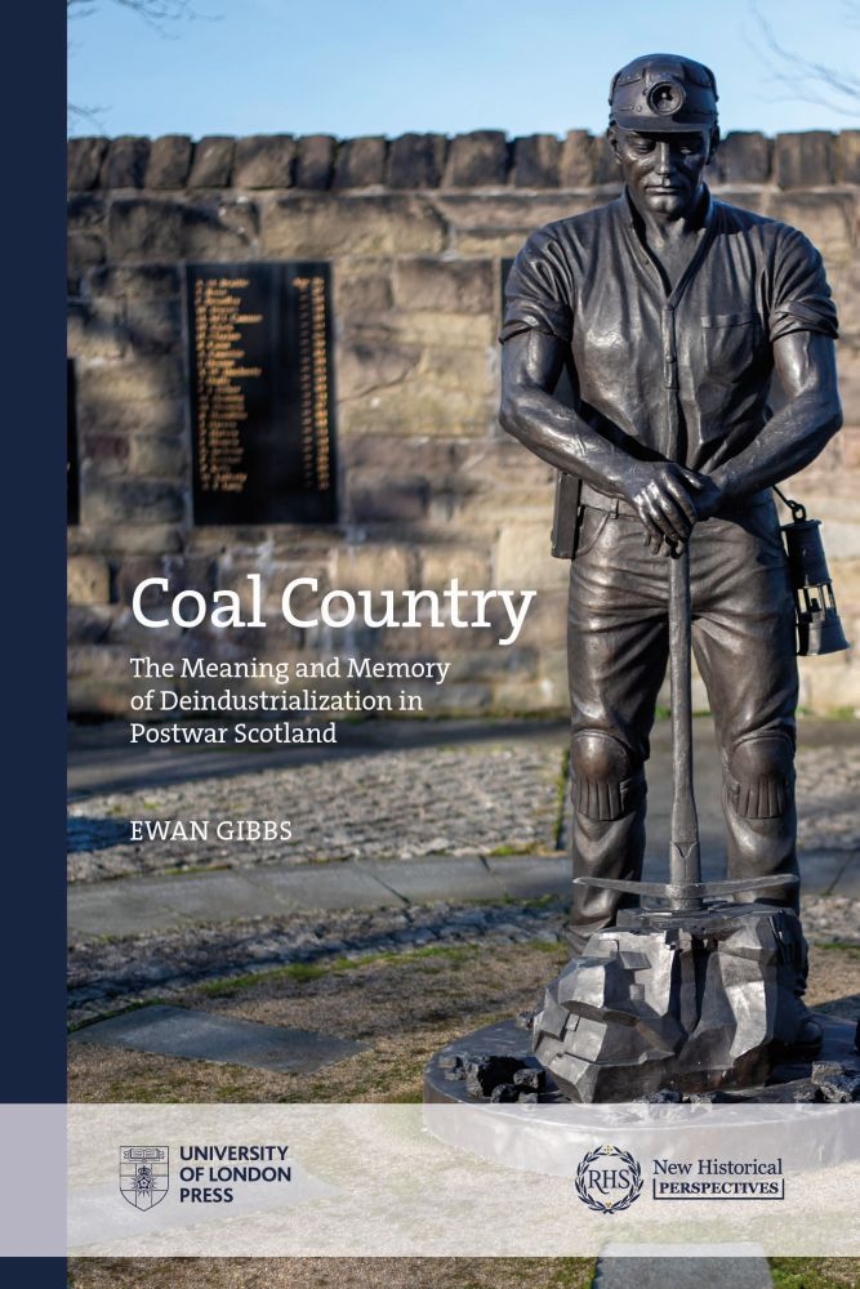Coal Country
The Meaning and Memory of Deindustrialization in Postwar Scotland
9781912702558
9781912702541
Distributed for University of London Press
Coal Country
The Meaning and Memory of Deindustrialization in Postwar Scotland
The flooding and subsequent closure of Scotland’s last deep coal mine in 2002 was a milestone event in the nation’s deindustrialization. Villages and towns across the densely populated Central Belt of Scotland owe their existence to coal mining’s expansion during the nineteenth century and its maturation in the twentieth. Colliery closures and job losses were not just experienced in economic terms: they also had profound social, cultural, and political implications. Coal Country documents this process of deindustrialization and its effects, drawing on archival records from the UK government, the nationalized coal industry, trade unions, and transcripts from an extensive oral history project. Deindustrialization, we learn, progressed slowly but powerfully across the second half of the twentieth century. Coal Country explains the deep roots of economic changes and their political reverberations, which continue to be felt to this day.
250 pages | 2 color plates, 6 haltones | 6.14 x 9.21
History: British and Irish History
Sociology: Urban and Rural Sociology
Reviews
Table of Contents
Introduction: Those who walked in darkest valleys
Chapter 1 ‘Buried treasure’: industrial development in the Scottish coalfields, c.1940s–1980s
Chapter 2 Moral economy: custom and social obligation in colliery closures
Chapter 3 Communities: ‘it was pretty good’ in reconstructed locales
Chapter 4 Gendered experiences
Chapter 5 Generational perspectives
Chapter 6 Coalfield politics and nationhood
Chapter 7 Synthesis: ‘the full burden of national conscience’: class, nation and deindustrialization
Conclusion: The meaning and memory of deindustrialization
Appendix: Interviewee biographies
Bibliography
Chapter 1 ‘Buried treasure’: industrial development in the Scottish coalfields, c.1940s–1980s
Chapter 2 Moral economy: custom and social obligation in colliery closures
Chapter 3 Communities: ‘it was pretty good’ in reconstructed locales
Chapter 4 Gendered experiences
Chapter 5 Generational perspectives
Chapter 6 Coalfield politics and nationhood
Chapter 7 Synthesis: ‘the full burden of national conscience’: class, nation and deindustrialization
Conclusion: The meaning and memory of deindustrialization
Appendix: Interviewee biographies
Bibliography

